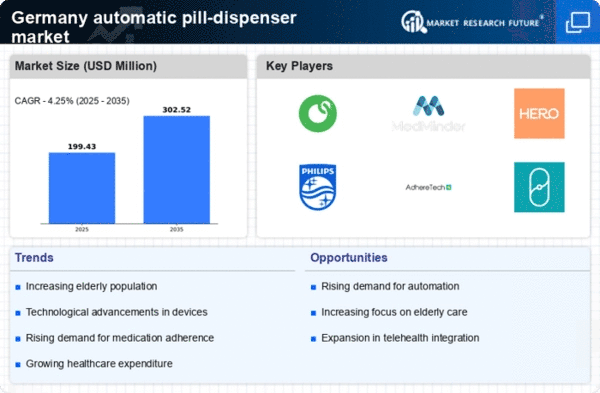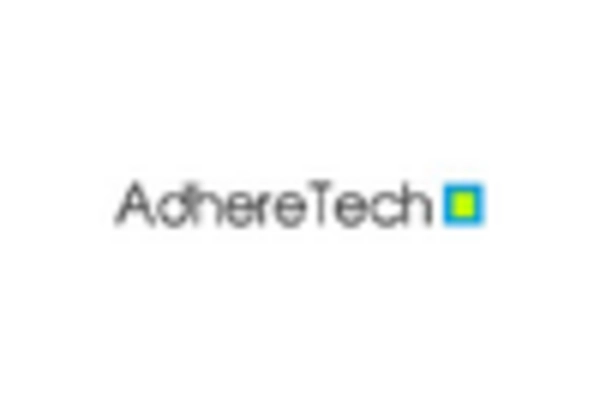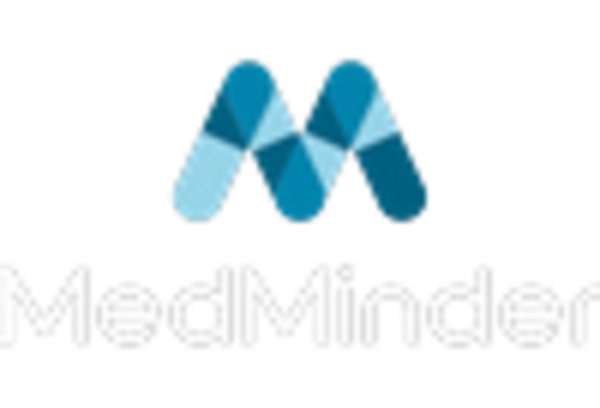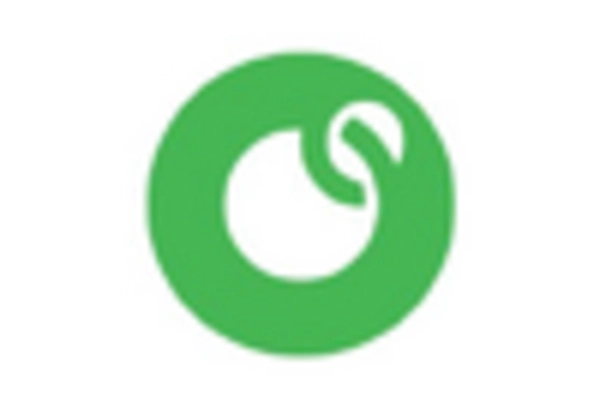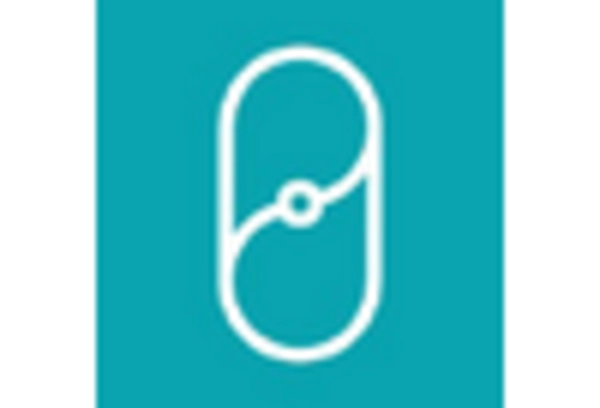Supportive Regulatory Environment
The regulatory landscape in Germany is becoming increasingly supportive of innovations in the healthcare sector, including the automatic pill-dispenser market. Recent initiatives by the German Federal Ministry of Health aim to streamline the approval processes for medical devices, encouraging the development and adoption of advanced healthcare technologies. This supportive environment is likely to foster growth in the automatic pill-dispenser market, as manufacturers can bring their products to market more efficiently. Furthermore, the government is actively promoting digital health solutions, which aligns with the functionalities of automatic pill dispensers, thereby enhancing their acceptance among healthcare providers and patients alike.
Technological Integration in Healthcare
The integration of advanced technologies into healthcare systems in Germany is driving innovation within the automatic pill-dispenser market. With the rise of telemedicine and digital health solutions, automatic pill dispensers are increasingly being equipped with features such as connectivity to mobile applications and remote monitoring capabilities. This technological evolution allows caregivers and healthcare professionals to track medication adherence in real-time, enhancing patient management. The automatic pill-dispenser market is likely to benefit from this trend, as more healthcare facilities adopt these devices to streamline medication management processes. Furthermore, the market is projected to grow at a CAGR of around 10% over the next five years, reflecting the increasing reliance on technology in healthcare.
Increased Focus on Preventive Healthcare
Germany's healthcare system is shifting towards preventive care, which emphasizes the importance of managing health proactively rather than reactively. This paradigm shift is influencing the automatic pill-dispenser market, as these devices play a crucial role in preventing medication errors and ensuring adherence. By facilitating proper medication management, automatic pill dispensers contribute to better health outcomes and reduced hospitalizations. The automatic pill-dispenser market is likely to see increased adoption as healthcare policies promote preventive measures. Additionally, the German government has allocated substantial funding towards initiatives aimed at enhancing preventive healthcare, further supporting the growth of this market.
Aging Population and Chronic Disease Management
The demographic shift towards an aging population in Germany is a significant driver for the automatic pill-dispenser market. As the elderly population grows, so does the prevalence of chronic diseases that require complex medication regimens. Automatic pill dispensers offer a practical solution to help older adults manage their medications effectively, reducing the risk of errors and improving adherence. The automatic pill-dispenser market is expected to expand as more families and caregivers seek reliable tools to assist elderly patients. Current estimates suggest that by 2030, nearly 25% of the German population will be over 65 years old, indicating a substantial market opportunity for these devices.
Rising Demand for Medication Adherence Solutions
The increasing prevalence of chronic diseases in Germany has led to a heightened demand for effective medication adherence solutions. The automatic pill-dispenser market is experiencing growth as healthcare providers and patients seek ways to ensure timely and accurate medication intake. Reports indicate that approximately 50% of patients with chronic conditions do not adhere to their prescribed medication regimens, which can lead to severe health complications. This situation creates a significant opportunity for automatic pill dispensers, which can help mitigate these issues by providing reminders and organizing medications. The automatic pill-dispenser market is thus positioned to expand as healthcare systems prioritize adherence solutions to improve patient outcomes and reduce healthcare costs.


